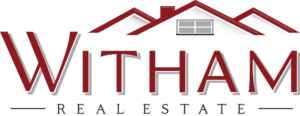With a reverse mortgage, you get a loan in which the lender pays you. Reverse mortgages take part of the equity in your home and convert it into payments to you – a kind of advance payment on your home equity. The money you get usually is tax-free. Generally, you don’t have to pay back the money for as long as you live in your home. When you die, sell your home, or move out, you, your spouse, or your estate would repay the loan. Sometimes that means selling the home to get money to repay the loan.
If you’re 62 or older and want money to pay off your mortgage, supplement your income, or pay for healthcare expenses you may consider a reverse mortgage.
Keep in mind, reverse mortgage can use up the equity in your home, which means fewer assets for you and your heirs. If you do decide to look for one, review the different types of reverse mortgages, and comparison shop before you decide on a particular company.
Types of Reverse Mortgages
As you consider whether a reverse mortgage is right for you, also consider which of the three types of reverse mortgage might best suit your needs.
Single-purpose reverse mortgages are the least expensive option. They’re offered by some state and local government agencies, as well as non-profit organizations, but they’re not available everywhere. These loans may be used for only one purpose, which the lender specifies. For example, the lender might say the loan may be used only to pay for home repairs, improvements, or property taxes. Most homeowners with low or moderate income can qualify for these loans.
Proprietary reverse mortgages are private loans that are backed by the companies that develop them. If you own a higher-valued home, you may get a bigger loan advance from a proprietary reverse mortgage. So if your home has a higher appraised value and you have a small mortgage, you might qualify for more funds.
Home Equity Conversion Mortgages (HECMs) are federally-insured reverse mortgages and are backed by the U. S. Department of Housing and Urban Development (HUD). HECM loans can be used for any purpose.
What to consider when shopping for a Reverse Mortgage
There are fees and other costs. Reverse mortgage lenders generally charge an origination fee and other closing costs, as well as servicing fees over the life of the mortgage. Some also charge mortgage insurance premiums (for federally-insured HECMs).
You owe more over time. As you get money through your reverse mortgage, interest is added onto the balance you owe each month. That means the amount you owe grows as the interest on your loan adds up over time.
Interest rates may change over time. Most reverse mortgages have variable rates, which are tied to a financial index and change with the market. Variable rate loans tend to give you more options on how you get your money through the reverse mortgage. Some reverse mortgages – mostly HECMs – offer fixed rates, but they tend to require you to take your loan as a lump sum at closing. Often, the total amount you can borrow is less than you could get with a variable rate loan.
Interest is not tax deductible each year. Interest on reverse mortgages is not deductible on income tax returns – until the loan is paid off, either partially or in full.
You have to pay other costs related to your home. In a reverse mortgage, you keep the title to your home. That means you are responsible for property taxes, insurance, utilities, fuel, maintenance, and other expenses. And, if you don’t pay your property taxes, keep homeowner’s insurance, or maintain your home, the lender might require you to repay your loan.
Understand total costs and loan repayment. Ask a counselor or lender to explain the Total Annual Loan Cost (TALC) rates: they show the projected annual average cost of a reverse mortgage, including all the itemized costs.
Looking for a real estate agent in the Sacramento area? Contact Victoria Witham 916.718.1751. Specializing in 55+ Communities.
